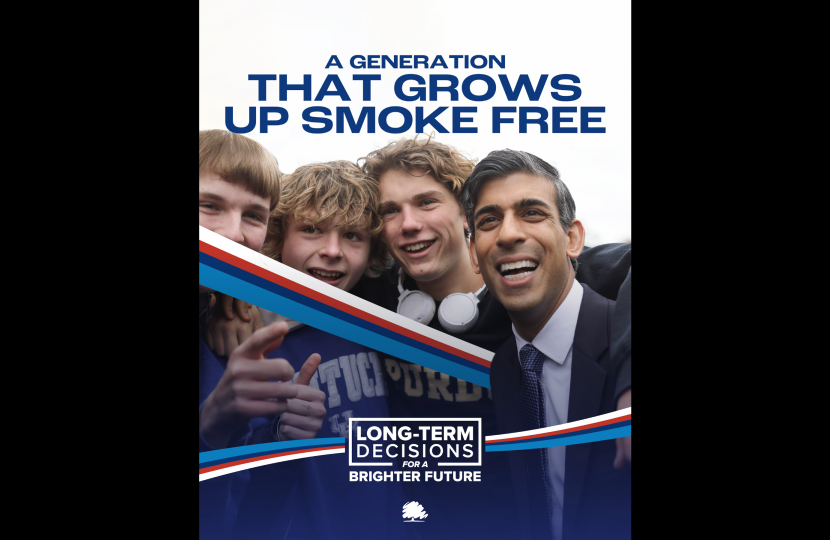
The NHS in Humber and North Yorkshire have announced they are “delighted” by the Prime Minister’s new proposals to tackle smoking, which would raise the legal age to buy cigarettes by one year, every year, meaning that children aged fourteen and under will never be able to legally buy cigarettes.
Smoking is the largest, preventable cause of ill-health, disability and death in the country. It kills over 64,000 people every year in England, including 1-in-4 of all cancer deaths, and smoking-related illnesses account for 75,000 GP appointments made every month.
It also costs a staggering £17 billion a year, with £3 billion spent directly by the NHS and £14 billion lost to the economy through lost productivity, including £1.7 billion to the Humber and North Yorkshire region alone – dwarfing the £10 billion a year that taxing tobacco products provides.
The Prime Minister has, therefore, decided to act now to secure a better future for the next generation.
He has pledged to put to a free vote in Parliament – where every MP may vote with their conscience – the recommendations of the independent review into smoking, which include raising the age of sale by one year every year.
In addition, the Government will support current smokers by doubling the funding for local ‘stop smoking services’, as well as cracking down on youth vaping and strengthening enforcement activity through new funding.
No one who legally smokes today will be prevented from doing so in the future under these plans.
Locally, NHS Humber and North Yorkshire Integrated Care Board, alongside their partners in the Health and Care Partnership, have prioritised tackling tobacco dependency and established a ground-breaking, regional Tobacco Control Centre for Excellence.
Despite progress being made, North Yorkshire still has some of the highest smoking rates in the country which, in turn, drives socio-economic and health inequalities. Across the country, it remains the single biggest driver behind people in the least deprived areas living around a decade longer than those in the most deprived.
In a letter to Julian, Stephen Eames CBE, Chief Executive of Humber and North Yorkshire ICB, and Sue Symington, Chair, expressed their support for the proposals, which they believe “could be the most significant public health intervention of our lifetime”.
Julian Smith said, “Smoking is one of the leading causes of death in this country and is the largest, preventable cause of death.
“This year, over 60,000 people will die because of it. If we don’t act now, nearly half a million more will die by 2030.
“The Prime Minister’s decision to act on the independent recommendations of the review into smoking will mean life-saving legislation can be passed to safeguard our children’s futures and defend the NHS and the economy from the enormous costs it poses.
"We know targeted action works. When the smoking age was raised from sixteen to eighteen, smoking prevalence fell by 30 per cent in that age group. With over 4-in-5 smokers starting before the age of twenty, taking this decisive action now to curb smoking from the start offers the next generation an opportunity to live their lives smoke-free.”
Stephen Eames, Chief Executive of NHS Humber and North Yorkshire ICB, said: “The case for action on smoking is clear, we must do more to prevent ill health in the first place, not just treat it afterwards. This is why our partnership in Humber and North Yorkshire has set up a ground-breaking Centre of Excellence in Tobacco Control. Smoking is the single biggest cause of preventable illness and death in our region, costing our area £464.9 million a year with £57.2 million in health care costs alone.
“Smoking devastates our poorest communities, with half the difference in life expectancy between rich and poor caused by higher smoking rates; a gap that is widening, with a third of all smokers among the 20 per cent most deprived communities. But what is more shocking, is that behind every statistic is a human being. A real person, threatened by the debilitating health effects of smoking, and significantly poorer because of an addiction that started in childhood.”

